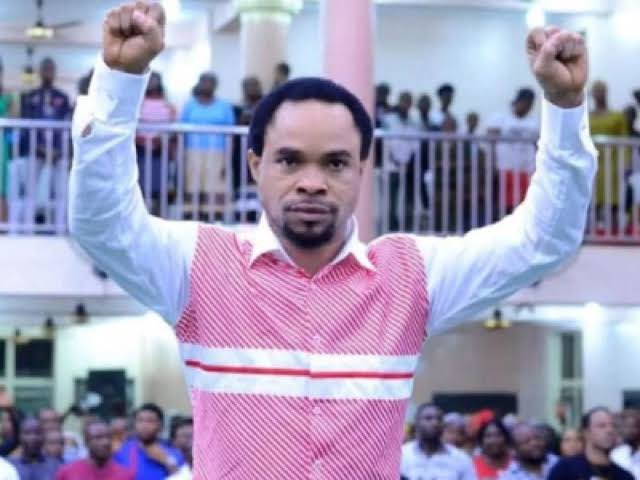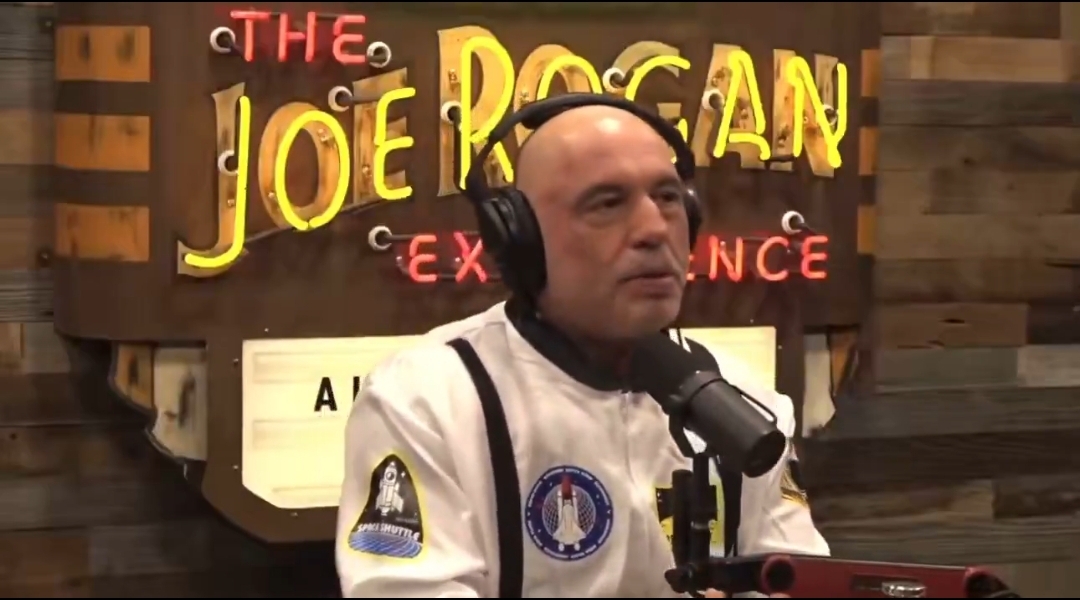
“When I Die, No One Will Find My Body, I Will Fly Away” — Prophet Odumeje Sparks Reactions With Shocking Revelation

In a startling revelation that has gripped both the religious and secular communities, controversial Nigerian preacher Prophet Chukwuemeka Ohanemere, popularly known as Odumeje or “The Lion Himself,” has declared that when his time on earth is done, no one will ever find his body because he will not die in the ordinary way but rather “fly away.” The fiery pastor, who has built a reputation for himself as one of the most unconventional clergymen in Nigeria, made this proclamation during one of his recent sermons, sending shockwaves across the internet as clips of his statement spread like wildfire on social media platforms. Known for his theatrical preaching style, flamboyant lifestyle, and dramatic healing sessions, Odumeje has often stirred controversy with his claims of possessing extraordinary powers, but this latest revelation has left even his most ardent followers stunned and bewildered.
In the viral video, Odumeje could be seen addressing his congregation with passion as he declared that his death would not be like that of ordinary men. According to him, his departure from the world will be marked by a supernatural event that will leave no trace of his physical body. He said with conviction, “When I die, nobody will see my body. I will not be found. I will fly away.” As expected, his words were met with mixed reactions from the congregation, with some erupting in applause and chants of support while others appeared visibly taken aback by the bold claim. The pastor’s statement has since become a subject of debate across Nigeria, drawing both admiration and criticism in equal measure.
Many of his followers believe that his words should not be taken lightly, citing biblical examples such as the ascension of Jesus Christ and the mysterious disappearance of figures like Elijah and Enoch, who, according to scripture, were taken away by God without experiencing a conventional death. To them, Odumeje’s declaration is yet another manifestation of his divine calling and a testament to his spiritual authority. His devoted supporters argue that his ministry has always been marked by unusual signs and wonders, and therefore, his prediction of a supernatural exit should not come as a surprise. They see it as part of the unfolding mystery of his life and calling, one that reinforces their faith in him as a prophet chosen by God.
However, critics have not hesitated to dismiss his proclamation as nothing more than theatrics designed to maintain his cult of personality and keep his name in the headlines. Some accuse him of exploiting the gullibility of his followers, arguing that his brand of sensational preaching is a departure from the core message of Christianity. Social media has been awash with skeptical comments, with many users poking fun at the statement, creating memes, and questioning the logic behind such a claim. For them, Odumeje’s latest remark is simply another episode in a long list of controversial antics that have made him one of Nigeria’s most polarizing religious figures.
What makes this particular statement stand out is the context in which it comes. Odumeje has often described himself as a man sent on a divine mission with extraordinary powers. He has styled himself as the “Indaboski Bahose,” a self-coined title that has become synonymous with his brand of fiery preaching and spiritual warfare. Over the years, he has staged dramatic healing services that involve unconventional practices such as lifting and throwing congregants in what he describes as demonstrations of divine power. His church services are more of a spectacle than traditional gatherings, often blending music, dance, and theatrical displays in a way that keeps his congregation both entertained and inspired.
For his critics, this latest prophecy is just another chapter in his long history of dramatic statements, but for his faithful, it represents a prophetic vision of things to come. They argue that just as skeptics once doubted the miraculous events recorded in scripture, so too are many today blind to the spiritual realities that surround Odumeje’s ministry. To them, the pastor’s words carry weight, and time will eventually vindicate him. It is this tension between faith and skepticism that has made his pronouncement a national talking point, sparking heated debates not only in churches but also in homes, campuses, marketplaces, and online forums.
Religious analysts have weighed in, with some suggesting that Odumeje’s claim could be symbolic rather than literal. They argue that his words might be intended to convey the idea that his legacy and spiritual impact will transcend death, making him a figure who will never truly be forgotten. In this interpretation, his statement about “flying away” could be seen as a metaphor for leaving behind an enduring influence that will continue to shape the lives of his followers long after his physical body is gone. Others, however, insist that given Odumeje’s history of literal and dramatic declarations, it is difficult to interpret his words as anything other than a direct prophecy about his physical departure.
The boldness of his claim has also reignited conversations about the role of pastors and prophets in Nigeria’s religious landscape, where charismatic leaders often wield enormous influence over their congregations. Nigeria is a deeply religious country, and many believers place unquestioning faith in their spiritual leaders. This has sometimes created an environment where controversial statements are embraced without much scrutiny. For critics, Odumeje’s latest pronouncement underscores the need for discernment among believers and raises questions about the boundaries of religious authority.
Yet, despite the criticisms, there is no denying that Prophet Odumeje has carved a unique niche for himself in Nigeria’s religious scene. His unconventional approach has earned him a loyal following, particularly among youths who are drawn to his charisma, energy, and unapologetic style. His music career, which runs alongside his ministry, has further cemented his image as a larger-than-life personality who defies traditional expectations of what a pastor should be. To many, he represents a new breed of preachers who blend spirituality with entertainment, creating a brand of religion that resonates with modern audiences.
As debates continue to rage over his shocking prophecy, one thing is certain: Odumeje has once again succeeded in capturing the nation’s attention. Whether his words will ultimately prove true or fade away as just another controversial statement remains to be seen, but for now, his declaration has secured its place in the ongoing conversation about faith, power, and spectacle in Nigeria’s religious life. His followers continue to rally around him, convinced that their prophet is a man destined for an extraordinary end, while his critics watch with skepticism, waiting for time to tell. In the meantime, the man who calls himself the Lion, the Indaboski Bahose, and the Liquid Metal has reminded the world once again that in the theatre of faith and prophecy, he remains one of the most enigmatic performers Nigeria has ever seen.


